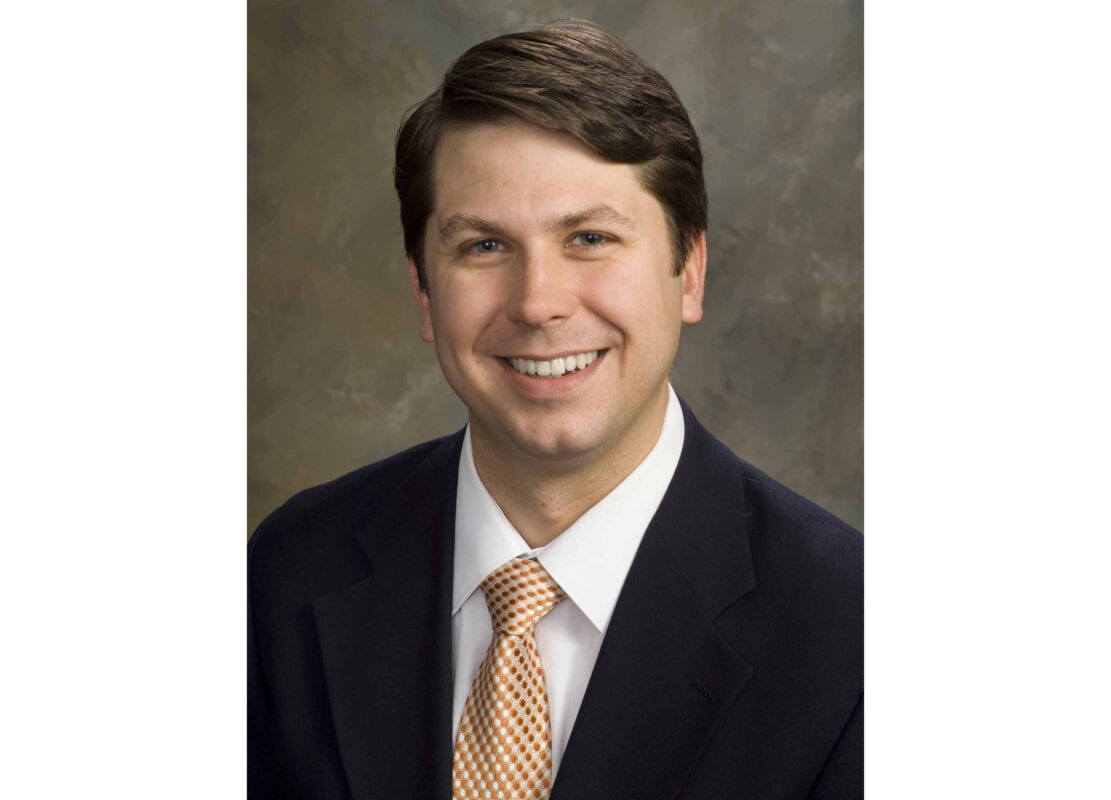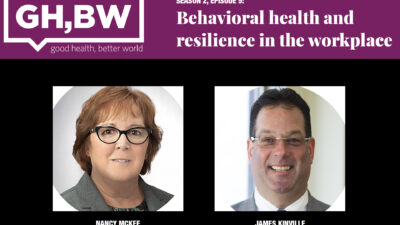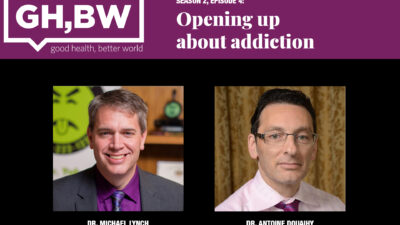Health care in the U.S. has long been anchored in clinical data and outcomes. But there's now widespread recognition that better health for more people requires a different approach that accounts for social, economic, and environmental factors. What are commonly referred to as social determinants of health.
In order to better address those factors, UPMC Health Plan created its UPMC Center for Social Impact in Pittsburgh one year ago. Social Impact partners across the UPMC integrated delivery and finance system, as well as with community organizations throughout Pennsylvania to increase access to housing, jobs, and other needs that don't signal a person is sick — but can't maintain good health without them.
Experts there also are conducting research about how to bring these approaches to more people — not just in Pennsylvania, but beyond.
In Episode 1 of Good Health, Better World, host Ellen Beckjord talks to Ray Prushnok, Associate Vice President, program development and executive director of UPMC Center for Social Impact.
We recently had a conversation where we talked about systemic influencers of health. What are your thoughts about why those topics are so important, especially right now?
As we think about the whole-person approach to health care, we have traditionally looked at lifestyle factors, personal behaviors. There's been increasing understanding about how the physical environment can influence people's health. We've been hearing social determinants of health as a buzzword for many years.
The importance has really emerged since the Affordable Care Act. We saw vast improvements, but those improvements relied on traditional health plan tools.
They relied on things like telephonic outreach and in-home visits. And what we have realized is that still there are communities that are falling behind and individuals who are falling behind. There have been some incredible analyses that have shown that the vast majority of health outcomes are driven by social, environmental, and behavioral factors. Not the things that happen in a clinical setting.

How has that has affected UPMC's commitment to expand its purview beyond just clinical care, and be part of changing the broader social context, because we know it's so critical for improving health and health outcomes?
With competing social factors, it's very difficult for some people to focus on their health and do the things that we're asking them to do as an integrated delivery system — whether it's coming to an appointment or closing a gap in care by going and getting that screening, let alone taking control of other areas like lifestyle and diet management.
So, it is very important as we think about how we get to the next level and healthcare through all the improvements that have occurred in recent decades, the next frontier is linking these social factors to how healthcare organizations operate.
To listen to the whole conversation, click here.
To learn more about the Center for Social Impact or to inquire about how your organization may work with the Center, click here.
This interview was edited for clarity and brevity.







